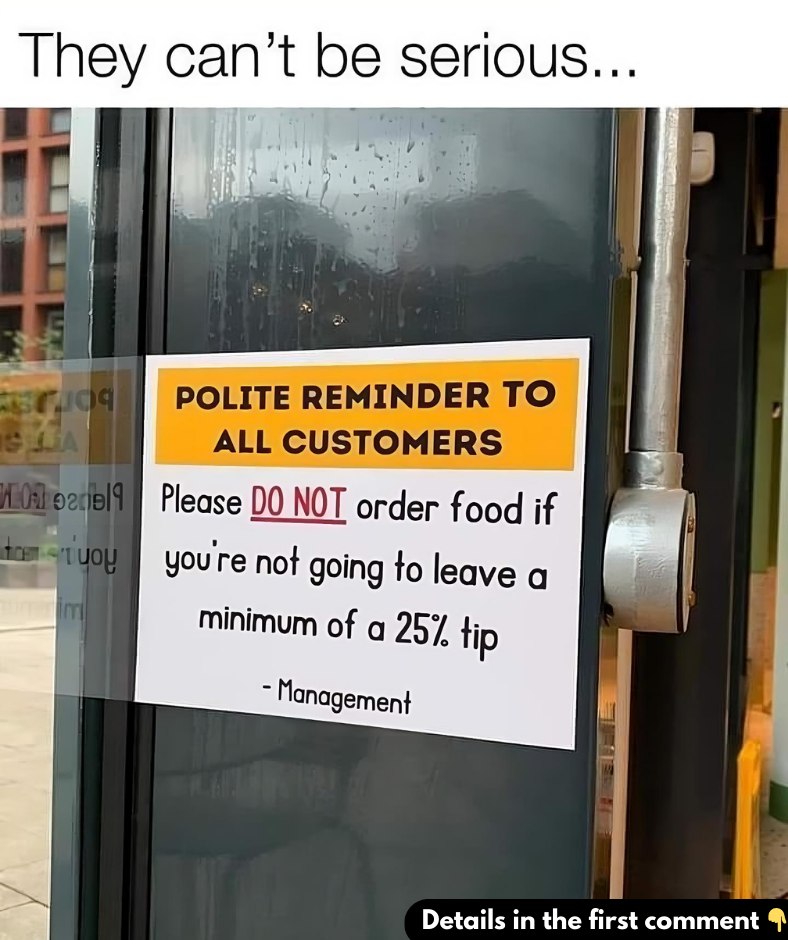Tipping has long been a part of dining and service culture, especially in the United States. What started as a way to reward exceptional service has now evolved into a controversial topic. Today, tipping is often seen as an obligatory practice, sparking heated debates about its fairness and relevance. Is tipping still about showing gratitude, or has it become an outdated system that needs reform?

The Origins of Tipping
Tipping began as a way to thank workers for outstanding service. The concept, imported from Europe in the 19th century, allowed customers to give a small bonus to employees who went above and beyond. It was a win-win: customers felt good about rewarding great service, and workers could supplement their income.
Over time, however, tipping in the United States shifted from being a reward to an expectation. Many industries began relying on tips to subsidize low wages, effectively turning gratuities into a necessity rather than a gesture of appreciation. This shift has led to growing dissatisfaction among both customers and workers, as the practice no longer feels voluntary or fair.
A Critic’s Perspective: Dustin Anderson
Recently, Dustin Anderson, a vocal critic of modern tipping culture, sparked a viral discussion by sharing his frustrations. Anderson argued that tipping should be reserved for “exceptional service,” a rarity in his opinion.
“When was the last time you got truly exceptional service?” Anderson asked his followers. He noted that tipping has shifted from rewarding excellence to being an unspoken requirement. “They bring you the bill and just expect you to add 20 or 25 percent,” he said, emphasizing how disconnected this expectation feels from the original purpose of tipping.
Anderson’s views resonated with many. One commenter exclaimed, “Tipping is OUT OF CONTROL.” Another questioned why customers are now expected to tip for services like coffee or takeout, calling it “absurd.” These sentiments highlight a growing frustration with the widespread nature of tipping and the pressure it places on consumers.
Defending Tipping: The Service Industry’s View
While Anderson’s criticism gained traction, others defended tipping, particularly those who have worked in service roles. For many, tips are more than just appreciation—they’re essential for making a living.
“As a former server, we had to PAY to serve people who didn’t tip,” one commenter explained, referring to the practice where servers share a percentage of their sales with the restaurant. Others pointed out the demanding nature of service jobs, arguing that tips are compensation for physically and emotionally taxing work.
“Try being a waiter and see if you still feel the same,” one person challenged. Many supporters of tipping argue that the real problem lies with employers who rely on tips to supplement wages instead of paying fair salaries. This systemic reliance on tips shifts the financial burden from businesses to customers, creating an imbalance that leaves workers vulnerable.
How Tipping Culture Has Changed
Modern tipping culture has expanded far beyond its original scope. Customers are now frequently asked to tip in situations that previously didn’t require gratuities—like at coffee shops, fast-food counters, and even self-checkout kiosks. This constant prompting has left many feeling overwhelmed and pressured.
Delivery services have also added complexity to the tipping debate. Stories of delivery drivers canceling orders or damaging food due to low tips are increasingly common, further fueling resentment among customers. In one viral video, a woman defended her decision not to tip her home-based hairdresser by arguing, “She doesn’t commute, and she doesn’t have overhead costs.” While some agreed with her stance, others criticized her for undervaluing service work.
The Troubling History of Tipping
Tipping’s history in the United States reveals deeper systemic issues. After the abolition of slavery, tipping became widespread as a way for employers to avoid paying fair wages to newly freed Black workers. This practice disproportionately affected women of color and perpetuated economic inequality. While the racial dynamics of tipping have evolved, the core issue remains: many workers in tipped industries still earn less than minimum wage, relying on inconsistent gratuities to make ends meet.
Comparing the U.S. and Europe
Interestingly, while tipping originated in Europe, it’s far less common there today. Many European countries include service charges in the bill and pay workers fair wages, eliminating the ambiguity of tipping. This system ensures employees are compensated fairly without relying on customer generosity.
In contrast, tipping in the U.S. has become a deeply ingrained expectation, even in situations where service quality doesn’t warrant it. This discrepancy raises questions about why the U.S. continues to uphold a system that has proven problematic elsewhere.
Rethinking the System
The tipping debate underscores a larger issue: the need for systemic change. Many argue for eliminating tipping altogether, suggesting that employers should pay fair wages and include service charges in pricing. Others advocate for a middle ground, reserving tips for exceptional service rather than treating them as mandatory.
Ultimately, the debate is about fairness and accountability. Customers shouldn’t feel obligated to tip regardless of service quality, and workers shouldn’t have to rely on inconsistent tips to earn a living. The solution lies in reevaluating how wages, pricing, and customer expectations intersect.
Conclusion
Tipping began as a way to express gratitude but has become a contentious practice that often leaves both customers and workers dissatisfied. Critics like Dustin Anderson have sparked important conversations about the flaws in modern tipping culture, calling for a reevaluation of its role in today’s society.
At its heart, tipping should be about recognizing exceptional service—not subsidizing low wages. By addressing issues like fair pay and clear pricing, we can create a system that benefits everyone. Until then, the tipping debate will continue to divide opinions, forcing us to reconsider what fairness and appreciation truly mean in today’s world.